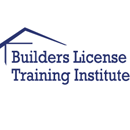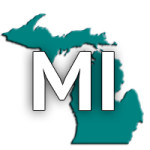Online anytime - 7-Hour Minnesota Business Practices Continuing Education Online Anytime
Training Provider: Builders License Training Institute
Online anytime
 No Reviews
No Reviews
We're sorry, but registration for this event has ended
View Upcoming 7-Hour Minnesota Business Practices Continuing Education Online Anytime In Online, Live| TICKET TYPE | PRICE | QUANTITY |
|---|---|---|
|
One Workshop Ticket more info» | $104.00 | Registration Ended |
| Registration Ended | ||
Why Should You Take This 7-Hour Minnesota Business Practices Continuing Education Online Anytime course?
In Minnesota, all building contractors and remodelers who contract with a homeowner to construct or improve dwellings by offering more than one special skill must be licensed. 14 hours of state-approved continuing education is required for every two year licensing cycle to maintain this license. At least one hour of Energy Code must be included for every two-year licensing period. There is no longer a requirement for one hour of lead paint training. That requirement changed to Energy Code several years ago.
This 7-Hour Minnesota Business Practices Continuing Education Online Anytime course is approved by the State of Minnesota and fulfills 7 credit hours of continued education toward the Minnesota Builders license, Contractors license or Manufactured Home Installer license. This is the fastest and most convenient method of completing your Minnesota builders and remodelers continued education.
Please Note: Half of the builders and remodelers in Minnesota must renew each year by March 31st. The State of Minnesota will not allow you to take the same course twice within a 2 year cycle. Students will have up to six months of access to course content.
If you have specific questions about your Minnesota Builders License, they should be directed to the Minnesota Department of Labor and Industry at 651-284-5012
Important: This course is approved for Residential Builders, Home Installers and Building Officials. You will have access to this course for one year, although we will extend that time if needed.
What Will Be Included In This 7-Hour Minnesota Business Practices Continuing Education Online Anytime course?
This seven hour video course focuses on the primary responsibilities of running a successful contracting business in Minnesota according to the rules and regulations surrounding the industry. All contractors should be aware of the business related requirements of their profession. This especially includes statutory regulations regarding warranty, contract and solicitation laws. Lien laws, advertising requirements, MNOSHA, lead and asbestos regulations are covered as well. Finally, one hour of advanced building techniques that utilize energy efficient methods is included to satisfy the Department of Industry and Labor energy requirement.
Learning objectives are provided to facilitate student understanding and progress. Incremental assessments (quizzes) appear at the end of each chapter. The final assessment ensures mastery of content covered. Students must answer 70% of the questions correctly in order to receive credit/certification for the course.
COURSE OUTLINE:
Chapter 1 - Contractor Registration Program
Objectives: 1) Understand the contractor registration requirements and who must comply. 2) Learn how the registration process works. 3) Be able to identify the prohibited activities related to contractor registration.
Chapter 2 - Introduction to MNOSHA
Objectives: 1) Describe the role MNOSHA plays in administrating safety regulations. 2) Distinguish who is responsible for compliance. 3) Recognize and describe recordkeeping and reporting requirements.
Chapter 3 - Lead and Asbestos Requirements
Objectives: 1) Understand who needs to be RRP certified. 2) Explain the difference between renovation and abatement work. 3) Describe the MN asbestos ban and asbestos licensing requirements.
Chapter 4 - Written Contracts, Roofing Contracts, Unenforceable Clauses and Records
Objectives: 1) Recognize the circumstances under which contracts must
be written, and what language must be used. 2) Understand the right to cancel
provisions for roofing contracts. 3) Explain recordkeeping requirements.
Chapter 5 - Home Solicitation Sales Act
Objectives: 1) Outline the mechanics of a Home Solicitation sale, including how to calculate the right-to-revoke period. 2) Identify what must be included in every contract covered by the Home Solicitation Sales Act. 3) Understand the process of cancellation.
Chapter 6 - Statutory Housing Warranty Claim Process I
Objectives: 1) Understand the language involved in statutory warranties, and be able to describe coverage for both dwellings and home improvements. 2) Identify the key warranty concepts that must be included in a written contract. 3) Identify what is, and what is not covered by the statutory housing warranty.
Chapter 7 - Statutory Housing Warranty Claim Process III
Objectives: 1) Understand the obligations of the contractor when served a Notice of Claim. 2) Describe the process of the dispute resolution process.
Chapter 8 - Contractor Recovery Fund
Objectives: 1) Gain an understanding of the Contractor Recovery Fund, and the fees contractors must pay. 2) Describe the provisions and limitations of reimbursement.
Chapter 9 - MN Lien Law
Objectives: 1) Identify pre-lien notice requirements and the steps to filing a lien claim. 2) Be able to describe the line claim foreclosure process.
Chapter 10 - Falsifying Information
Objectives: 1) Understand the requirements surrounding advertising. 2) Define false information, grounds for sanction and fraudulent, deceptive behavior.
Chapter 11 - Energy Efficient Building I
Objectives: 1) What is advanced framing, and what are some of the techniques used? 2) List the uses of insulated headers and energy heel trusses. 3) Understand the benefits of pre-fabricated walls.
Chapter 12 - Energy Efficient Building II
Objectives: 1) Identify strategies to encourage employee and subcontractor compliance using energy efficient methods. 2) Determine the purpose of air barriers, and what materials and methods are used.
Chapter 1 - Contractor Registration Program
Objectives: 1) Understand the contractor registration requirements and who must comply. 2) Learn how the registration process works. 3) Be able to identify the prohibited activities related to contractor registration.
1. Independent contractors
2. Employee/Employer relationship
3. Independent Contractor criteria
4. Exemptions from the registration process
5. Registration website
6. Prohibited activities
7. Enforcement and Penalties
Chapter 2 - Introduction to MNOSHA
Objectives: 1) Describe the role MNOSHA plays in administrating safety regulations. 2) Distinguish who is responsible for compliance. 3) Recognize and describe recordkeeping and reporting requirements.
1. Chapter 182 Minnesota Occupational Safety and Health
2. OSHA Mission
3. Employer responsibilities
4. Employee responsibilities
5. Inspections and penalties
Chapter 3 - Lead and Asbestos Requirements
Objectives: 1) Understand who needs to be RRP certified. 2) Explain the difference between renovation and abatement work. 3) Describe the MN asbestos ban and asbestos licensing requirements.
1. 326B.106 Subd. 13,14 Pre-1978 structures and lead certification
2. Lead Poisoning Prevention Act
3. 325F.01 Asbestos ban
4. 326.71 (4) Asbestos related work
5. 326.70-81 Penalties
Chapter 4 - Written Contracts, Roofing Contracts, Unenforceable Clauses and Records
Objectives: 1) Recognize the circumstances under which contracts must
be written, and what language must be used. 2) Understand the right to cancel
provisions for roofing contracts. 3) Explain recordkeeping requirements.
1. Management
2. Materials/Craftsmanship
3. Daily Log Book
4. Standards
Chapter 5 - Home Solicitation Sales Act
Objectives: 1) Outline the mechanics of a Home Solicitation sale, including how to calculate the right-to-revoke period. 2) Identify what must be included in every contract covered by the Home Solicitation Sales Act. 3) Understand the process of cancellation.
1. Definitions
2. Right to Cancel
3. Return of Goods and/or Payment
Chapter 6 - Statutory Housing Warranty Claim Process I
Objectives: 1) Understand the language involved in statutory warranties, and be able to describe coverage for both dwellings and home improvements. 2) Identify the key warranty concepts that must be included in a written contract. 3) Identify what is, and what is not covered by the statutory housing warranty.
1. Definitions
2. Types of Warranties
3. Limitations
4. Exclusions
Chapter 7 - Statutory Housing Warranty Claim Process III
Objectives: 1) Understand the obligations of the contractor when served a Notice of Claim. 2) Describe the process of the dispute resolution process.
1. Notice of Claim
2. Time Limits
3. Repairs and Inspections
4. Dispute Resolution
5. Remedies
Chapter 8 - Contractor Recovery Fund
Objectives: 1) Gain an understanding of the Contractor Recovery Fund, and the fees contractors must pay. 2) Describe the provisions and limitations of reimbursement.
1. Definitions
2. Fees
3. Application and Review4. Hearings and Compensation
Chapter 9 - MN Lien Law
Objectives: 1) Identify pre-lien notice requirements and the steps to filing a lien claim. 2) Be able to describe the line claim foreclosure process.
1. Required Notifications
2. Non-Payment, Penalties and Remedies
3. Foreclosure of Liens
Chapter 10 - Falsifying Information
Objectives: 1) Understand the requirements surrounding advertising. 2) Define false information, grounds for sanction and fraudulent, deceptive behavior.
1. License Requirements
2. Grounds for Sanctions
3. Fraudulent, Deceptive or Dishonest Practices
Chapter 11 - Energy Efficient Building I
Objectives: 1) What is advanced framing, and what are some of the techniques used? 2) List the uses of insulated headers and energy heel trusses. 3) Understand the benefits of pre-fabricated walls.
1. Advanced Framing Techniques
2. Raised Heel Trusses
3. Double walls
4. Prefabricated walls
Chapter 12 - Energy Efficient Building II
Objectives: 1) Identify strategies to encourage employee and subcontractor compliance using energy efficient methods. 2) Determine the purpose of air barriers, and what materials and methods are used.
1. Planning
2. Air Sealing
3. Airtight Drywall Approach
4. Structural Insulated Panels
5. Insulated Concrete Forms
| COURSE LOGISTICS | |
|---|---|
| Certificates | For live classes, certificates will be issued on day of course completion. |
| Food | No food provided |

The Builders License Training Institute helps thousands of builders and contractors get licensed and complete their continuing education requirements each year. Our courses are builder-friendly and guide you through every step of the process. All of our courses are created by real builders with decades of experience and expertise. Study at your own pace 24/7 from any computer or mobile device.

Questions? 954-400-0595


